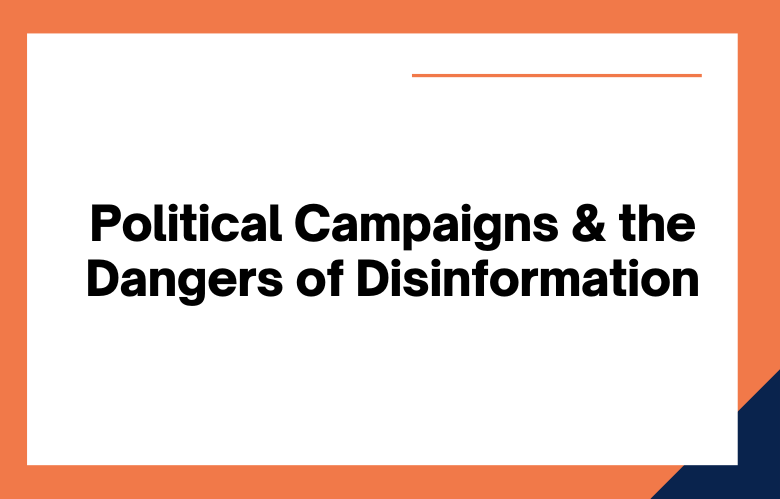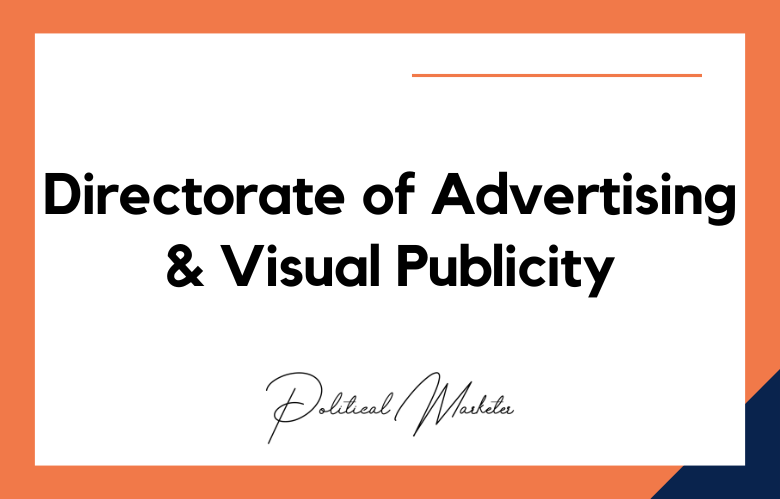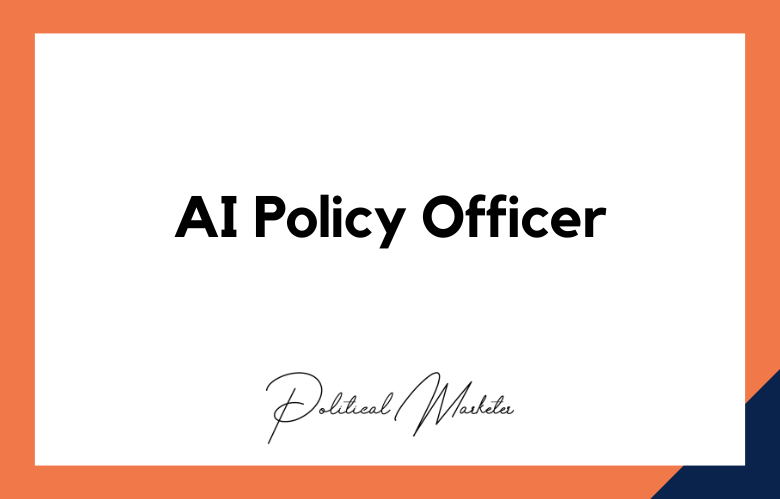Recently, we have seen an influx of Misinformation in political campaigns. It is dangerous because it can mislead voters and impact the outcome of an election. It is essential to be aware of the dangers of Disinformation and to fact-check before you vote.
What is Disinformation?
Disinformation is false or misleading information that’s spread deliberately to deceive people.
It is spread by people who have a stake in the outcome of a situation.
In political campaigns, supporters often spread a candidate’s Disinformation to make their candidate look better, and their opponent look terrible.
Why is Disinformation Dangerous?
Disinformation is dangerous because it can easily mislead people. It can cause people to make decisions based on false information, leading to negative consequences.
When it comes to voting, Misinformation can cause people to vote for a candidate who may not be the best choice for the job.
This can significantly impact an election’s outcome and even lead to significant changes in policy if the wrong candidate wins.
How Can You Fight Disinformation?
The best way to fight Disinformation is to be informed yourself.
Ensure you get information from credible sources and fact-check everything you read or hear.
Don’t believe everything you watch on social media, even if it’s from someone you know. If you see something that looks suspicious, do some research and see if you can find out if it’s true or not.
And finally, talk to people! Discuss the issues with your friends and family and see what they think.
The more informed we are, the harder it will be for Disinformation to spread.
He is following the rules and regulations set forth by the electoral process.
Another example of Disinformation is the claim that mail-in voting is fraudulent.
Again, this is not true. Mail-in voting is a perfectly safe and secure way to cast your ballot.
The vast majority of mail-in ballots are never lost or stolen, and there is no evidence that fraud occurs more frequently with mail-in votes than with in-person ballots.
How Disinformation Can Damage a Political Campaign
Disinformation can damage a political campaign in several ways:
- It can create mistrust among the campaign’s supporters. If they feel like they are being misled or given false information, they may become less likely to vote or support the campaign.
- If people believe the spread of false information, Disinformation can swing public opinion against a campaign. It can lead to a decline in poll numbers, making it more difficult for a campaign to win votes.
- Disinformation can also drain resources from a campaign as it tries to respond to false attacks and correct Misinformation.
Preventing Disinformation from Damaging Your Campaign
Many steps can be taken to prevent Disinformation from damaging your political campaign:
- It would help if you had a plan to identify and respond to Misinformation. It includes having someone on your team monitor social media and other sources of information for any false or misleading claims about your campaign.
- You should create fact-based content that refutes false claims and provides accurate information about your campaign platform and positions.
- It would help if you also worked with reliable media outlets to help ensure that accurate information about your campaign is disseminated to the public.
How Disinformation Can Hurt a Campaign
Disinformation can come in many forms, but when it comes to political campaigns, there are a few ways it can specifically do damage.
For one, Disinformation can discourage people from voting.
If people believe their vote won’t count or the election is rigged, they’re less likely to show up on election day.
Disinformation can lead people to vote for a candidate they otherwise wouldn’t have if they believed the false information they had given.
Disinformation can create divisions among voters and sow discord instead of promoting constructive dialogue.
What can be Done?
So, what can be done about the dangers of Disinformation in political campaigns?
For starters, campaigns must proactively identify and debunker false information as soon as it appears.
Campaigns should focus on building trust with voters by being transparent and honest about their policies and positions.
Campaigns must remember that social media isn’t the only way to reach voters; face-to-face interactions and traditional advertising channels are significant and should be addressed.
How Disinformation Can Undermine Democracy
Disinformation can undermine DeDemocracyn in several ways.
It can distort the public’s understanding of issues and make it difficult for them to make informed decisions.
It can also create mistrust and division among people. When misinformed, people may doubt the legitimacy of democratic institutions and the electoral process.
This can lead to political instability and violence.
Disinformation can also interfere with elections by discouraging people from voting or spreading false information about candidates.
Disinformation can have several adverse effects on society. It can make it difficult for people to find accurate information about current events.
It can also cause people to believe false information about history or science.
People should be more informed to make good decisions about important issues such as health care, the economy, or national security.
Disinformation can also lead to hate speech and bigotry.
There are several ways to combat Disinformation. One way is to create fact-checking websites that provide accurate information about current events and campaign promises.
Another way is to educate people about media literacy to critically evaluate the information sources they encounter.
Government and law enforcement agencies should crack down on those who knowingly spread Misinformation.
How Disinformation Can Hurt a Political Campaign
Disinformation can take many forms, but in general, it is false or misleading information deliberately spreading to cause harm.
When it comes to political campaigns, that harm can take the form of negative publicity, decreased voter support, and even violence.
What can we do aboDisinformationion?
The first step in combating Disinformation is to identify it when it appears. It means keeping up with what’s said about your candidate on social media and other websites.
It also means monitoring trend lines; a disinformation campaign is likely underway if you see a sudden spike in negative articles or posts about your candidate.
The second step is to correct the record.
When false or misleading information is spread about your candidate, it’s essential to set the record straight as quickly as possible so that voters aren’t left with the wrong impression.
You can do this through social media posts, press releases, and TV or radio interviews.
Unraveling the Impact of Disinformation on Political Campaigns in 2024
In the rapidly evolving landscape of political campaigns, the year 2024 has seen a significant escalation in the challenges posed by Disinformation. As digital platforms become increasingly integrated into our daily lives, they also serve as fertile ground for spreading false information designed to manipulate public opinion and electoral outcomes. This phenomenon has profound implications for deDemocracy, eroding trust in institutions and undermining the integrity of the electoral process.
Disinformation in political campaigns is not merely the spread of false information. Still, domestic and foreign actors often employ a targeted strategy to sway voter opinions or deepen societal divisions. These efforts are sophisticated and multi-faceted, utilizing advanced technologies such as artificial intelligence to create and spread convincing fake news and deepfakes that are increasingly difficult to distinguish from reality.
The impact of such disinformation campaigns on political outcomes can be significant. They have the potential to alter voter perceptions and decisions, affecting everything from policy preferences to candidate support. Moreover, the rapid spread of Misinformation through social media channels means that false claims can go viral within hours, reaching vast audiences before corrective measures can be implemented.
The Role of Social Media in Spreading Disinformation During Political Campaigns
Social media platforms play a pivotal role in disseminating information during political campaigns, offering unprecedented opportunities for engagement, advocacy, and dialogue. However, this same connectivity also poses significant risks, particularly in the form of Disinformation. The ease and speed with which information can be spread on social media make it an ideal medium for manipulating public opinion, especially during politically charged periods like elections.
Disinformation campaigns on social media are often designed to exploit users’ emotional reactivity, making sensational or outright false claims that are more likely to be shared and believed. Various actors can orchestrate these campaigns, including political entities, foreign governments, and special interest groups, all of whom aim to influence election outcomes or sway public sentiment on critical issues.
The algorithms that underpin social media platforms contribute to the spread of Disinformation by prioritizing content that engages users—regardless of its veracity. As a result, misleading or false content often gains more visibility and traction compared to factual reporting, which can be less sensational. Social media’s structure as echo chambers, where users see predominantly content that aligns with their existing beliefs, further exacerbates the problem by reinforcing Misinformation and reducing exposure to corrective facts.
Conclusion
Political campaigns are full of lies and deceit. It’s essential to be aware of the dangers of Disinformation to ensure an informed decision when you vote.
The best way to combDisinformationion is to educate yourself on the issues and ensure you get your information from credible sources.
Only then can we ensure that our voices are heard loud and clear on election day.
In today’s age of social media and 24/7 news cycles, it’s more important than ever for campaigns to be aware of the dangers of Disinformation.
One false story can quickly spiral out of control and severely damage a candidate’s reputation.
While prevention from spreading may be challenging, some steps can be taken to mitigate its effects. By cracking down on fake accounts and working closely with reporters, campaigns can help ensure voters get accurate information about the candidates.
Political campaigns are no stranger to the power of Disinformation. As we enter the campaign season, it is more important than ever to be aware of the dangers that this poses.
While there are many strategies for mitigating the effects of Disinformation, the best defense is a good offense. We specialize in helping our clients mount an effective offensive against their opponents by developing messaging that resonates with voters and keeping them informed throughout the campaign process.
Contact us today to learn how we can help you win your next political campaign.
Call: +91 9848321284
Email: [email protected]











